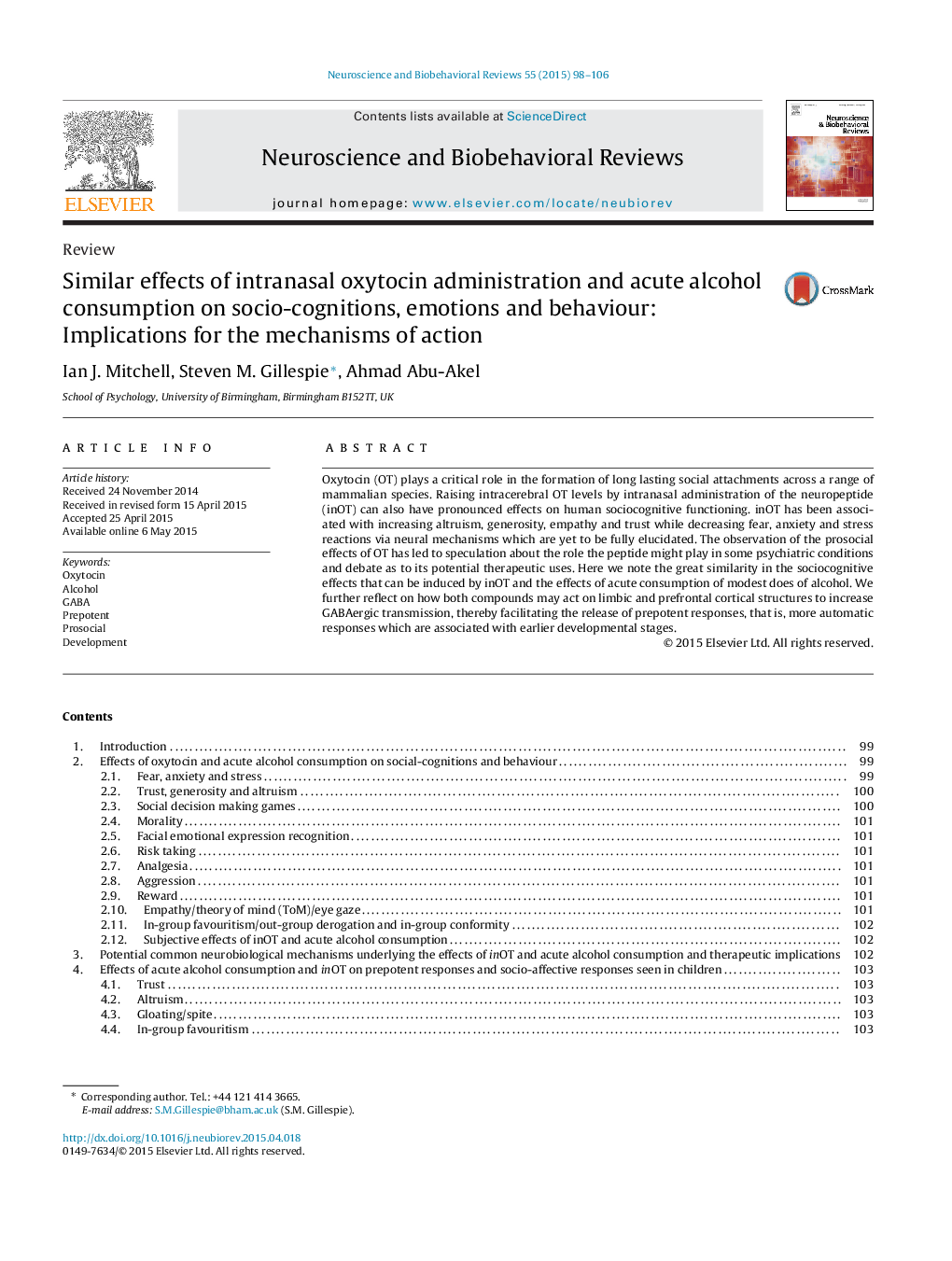| Article ID | Journal | Published Year | Pages | File Type |
|---|---|---|---|---|
| 7303346 | Neuroscience & Biobehavioral Reviews | 2015 | 9 Pages |
Abstract
Oxytocin (OT) plays a critical role in the formation of long lasting social attachments across a range of mammalian species. Raising intracerebral OT levels by intranasal administration of the neuropeptide (inOT) can also have pronounced effects on human sociocognitive functioning. inOT has been associated with increasing altruism, generosity, empathy and trust while decreasing fear, anxiety and stress reactions via neural mechanisms which are yet to be fully elucidated. The observation of the prosocial effects of OT has led to speculation about the role the peptide might play in some psychiatric conditions and debate as to its potential therapeutic uses. Here we note the great similarity in the sociocognitive effects that can be induced by inOT and the effects of acute consumption of modest does of alcohol. We further reflect on how both compounds may act on limbic and prefrontal cortical structures to increase GABAergic transmission, thereby facilitating the release of prepotent responses, that is, more automatic responses which are associated with earlier developmental stages.
Related Topics
Life Sciences
Neuroscience
Behavioral Neuroscience
Authors
Ian J. Mitchell, Steven M. Gillespie, Ahmad Abu-Akel,
